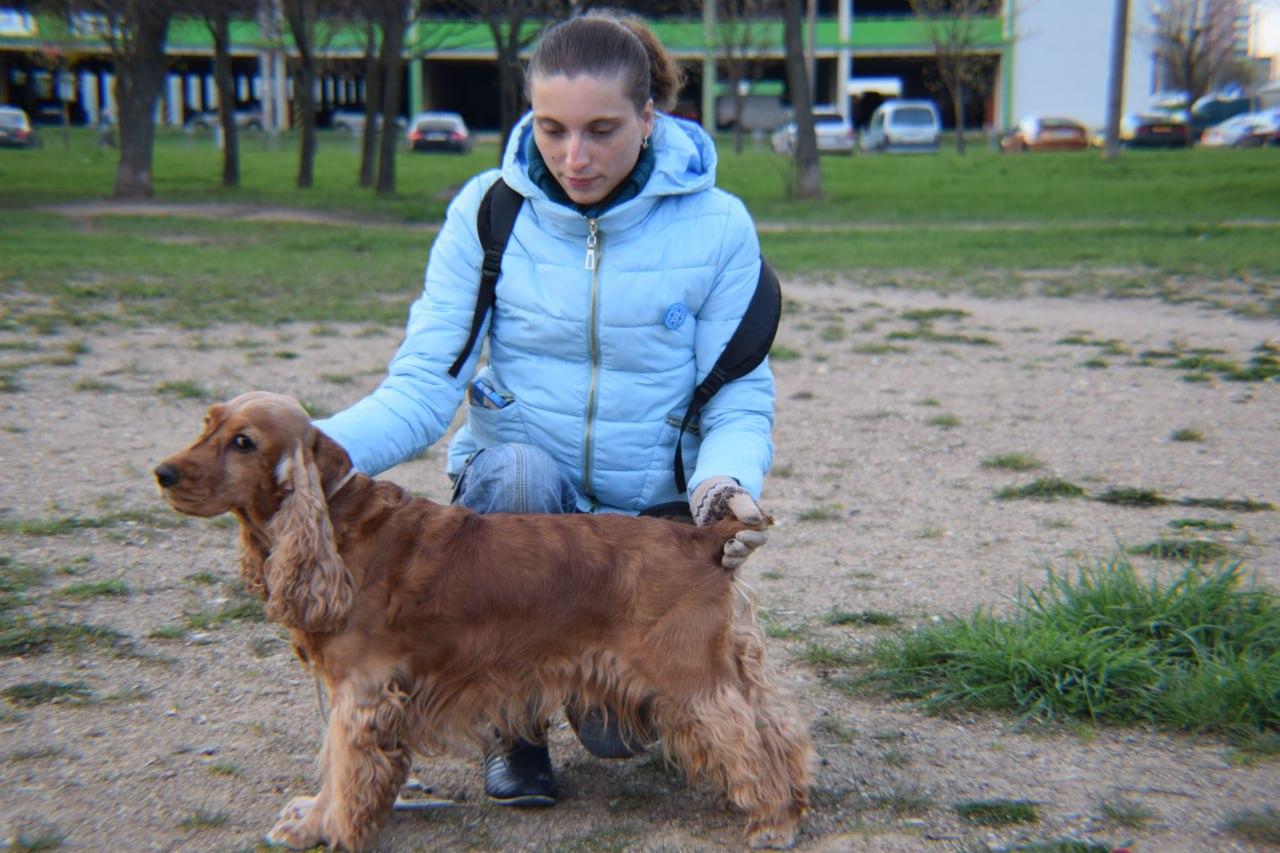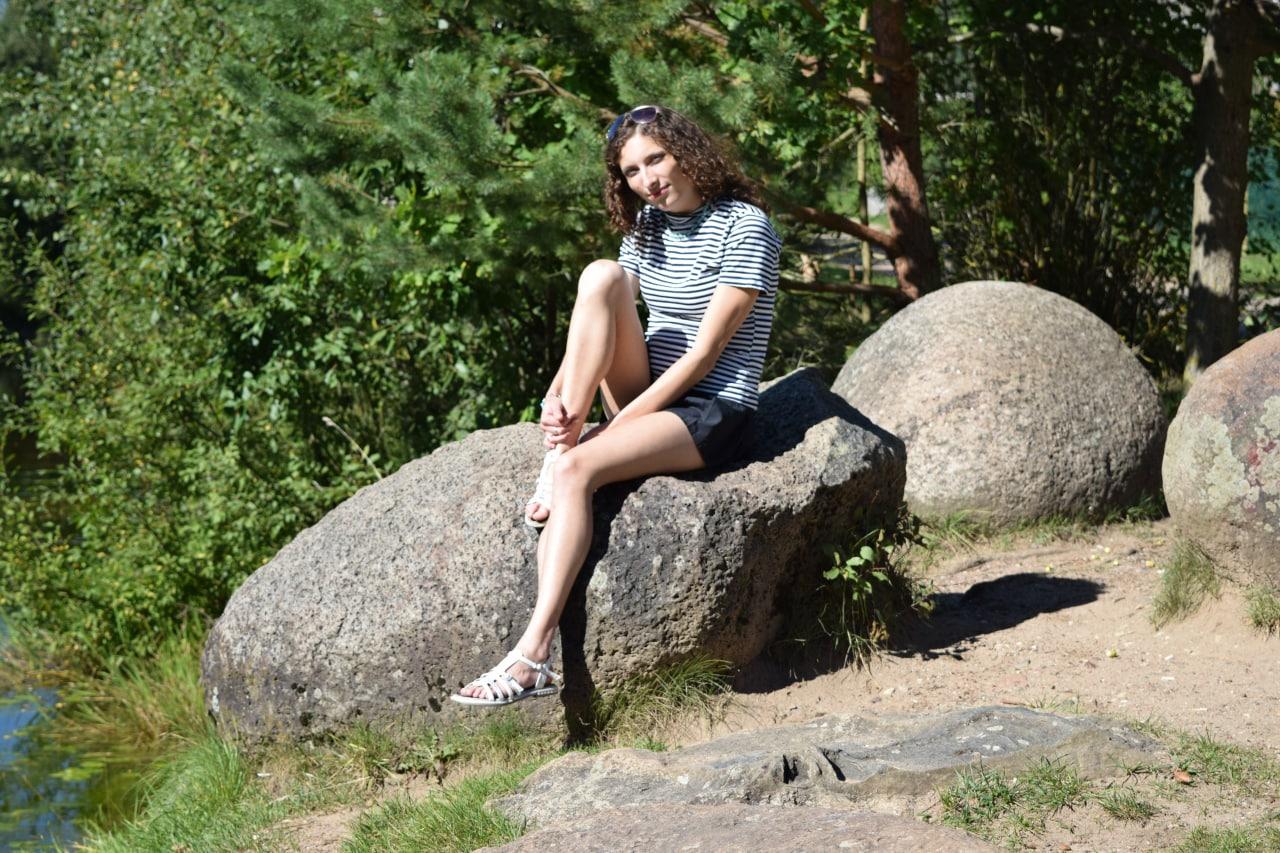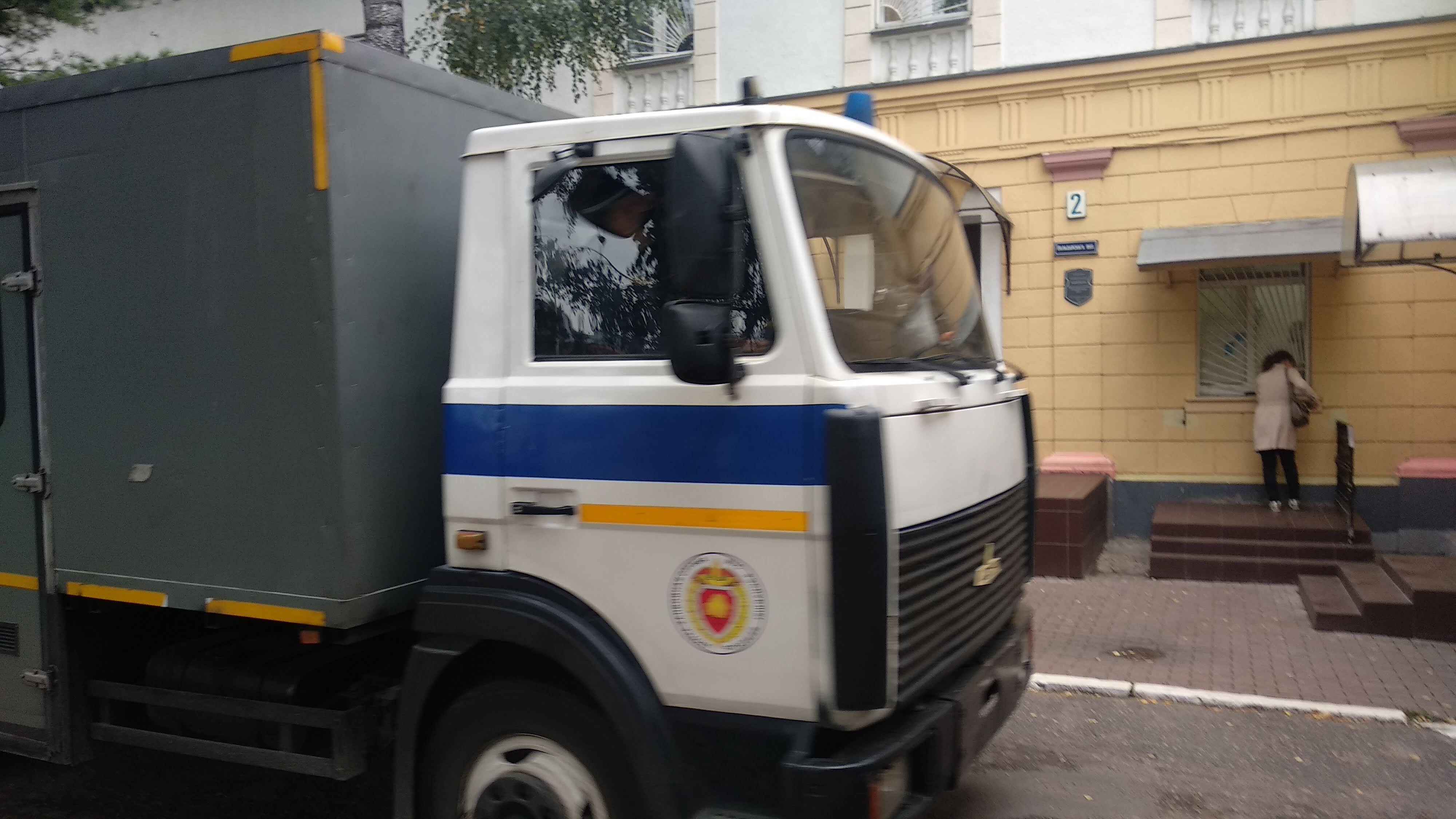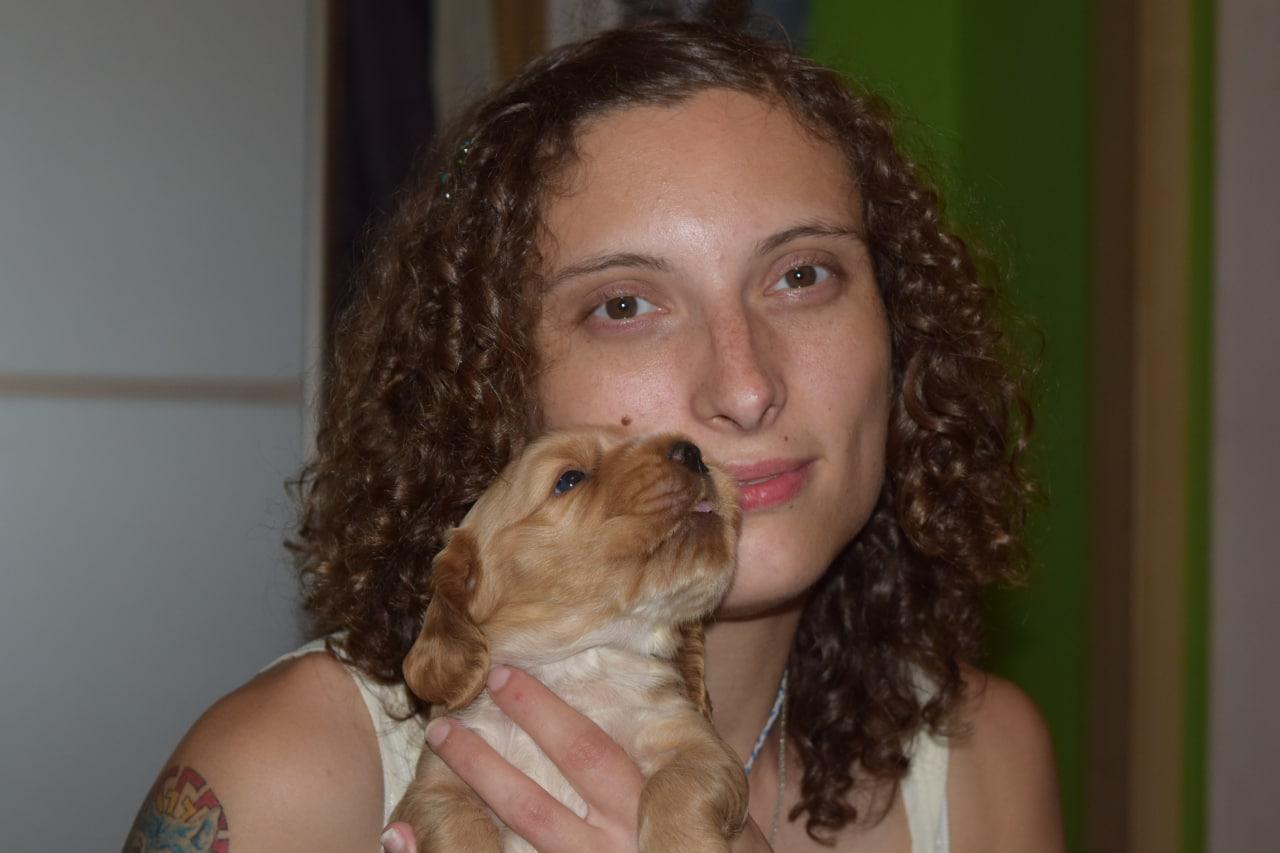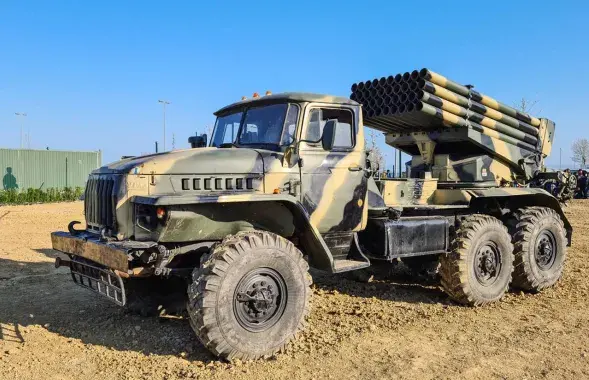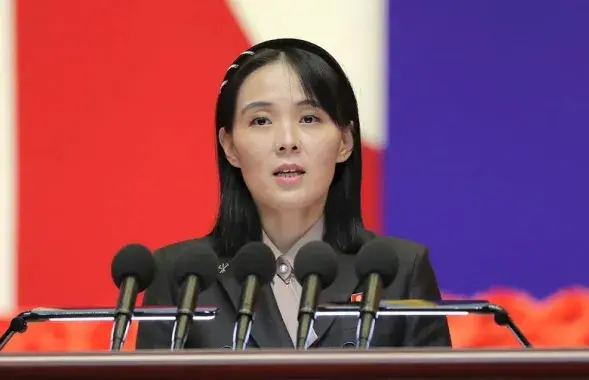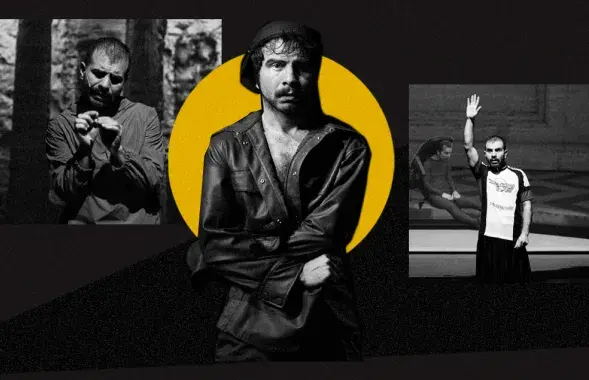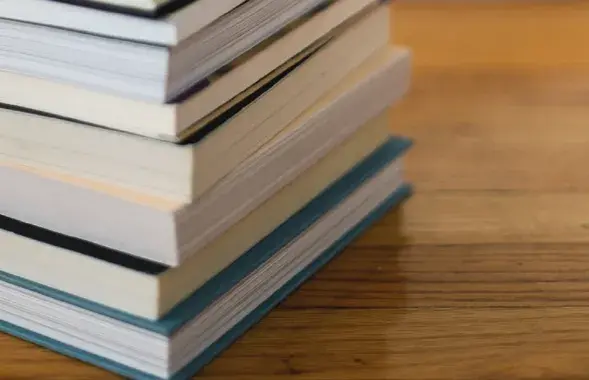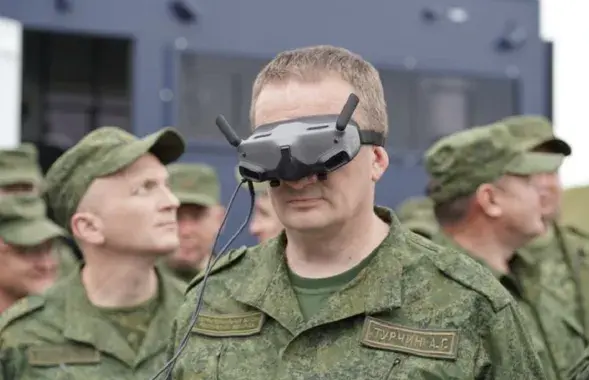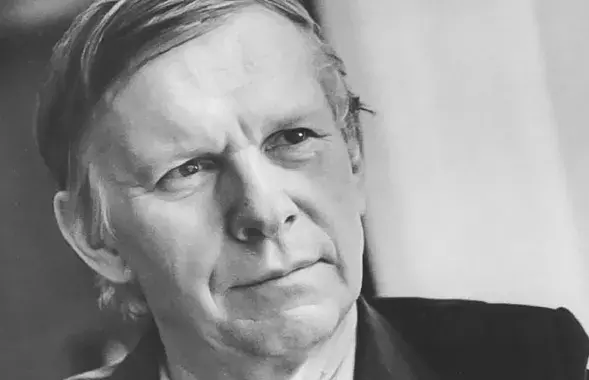The story of a girl who lost her child in a KGB jail

Kira Bayaranka / photo from personal archive
"There is a girl who was illegally kept at the Valadarka, a short name for the KGB prison in Valadarskaha street [the street is named after the Russian Jewish Marxist activist assasinated in 1918]. Her name is Kira Bayaranka. She has a group 3 disability and lost her child in prison. Now she's safe -- they managed to get her out. She wants to give an interview" -- that's how Kira was described to us before we contacted her.
Usually "she wants to give an interview" means a full interview with questions and answers. The conversation with Kira turned out to be a monologue, with only two clarifying questions on our part. Apparently, Kira really wanted to tell her story.
The editorial staff has documents at their disposal to corroborate Kira's story. But there are no documents that relate to the loss of the child in the KGB detention center.
Beginning
Right after the election I did not go out due to my disability. I stayed at home for a few days and watched everything on social feeds. I knew that there were a lot of detainees, that people were being beaten and that people were disappearing. So I decided to volunteer.
There were already chats "Okrestina" and "Zhodino+Baranovichi" on Telegram. I got in touch with people, told them where to take parcels, what to do, I called them, looked for their relatives, and this went on until about August 16.
Then I realized that there were too many people who needed help. So in order not to be stretched thin, I decided to work more locally. I thought that there were people in our area who needed help. I found the local Slepianka chat room.
There I met some guys, offered my help so that people could contact me and I would try to help them. I searched for people, counseled them and so on.
I worked that way until October, when I realized that I needed to help families and children. I created the foundation "Slepianka helps". It was not connected to any organization, it was purely the initiative of the district, the initiative of ordinary Belarusians. I put there information about how many prisoners from the district were "there" and whether they needed help.
Protests
I took part in protests on August 12, during the women's march. I remember well the story from Kuibyshau Street, when a girl and her mother were taken to the police truck. And the girl was under 17 years old, she was let out of the truck, but her mother was not. And I remember the eyes of the girl who was in shock.
That's when it was clearly understood that it was probably going to be a long time. I hoped the new Belarus would come sooner. We went out in lare numbers, we stood up for our views well -- that was the hope.
First detention
I was detained for the first time in December 2020 at the march of the pensioners. The riot police came running out and started throwing people on the ground and beating them with their truncheons. For some reason I was so scared that I was afraid to run. I was just looking at what was happening in horror.
As a volunteer, I knew what could happen. One of the riot policemen picked me up and threw me into the paddy wagon. It was just awful in there, they dragged me into a side door and threw me in. They told me to stay down. They were very aggressive. And through the back door I saw that there were men lying on top of each other and they were simply being beaten with batons. The policemen were jumping on them.
The riot policemen were making them sing the anthem, shouting that they were going to teach them to love Belarus. I started shouting that I was disabled, I had the ID on me just in case. I thought that they would not beat a disabled person.
I shouted that one blow to the spine with a truncheon and I wouldn't get up. Then one of the riot policemen said that I could get up from my knees and sit on the seat.
I got up, and the other enforcer pulled my hat over my eyes. They spoke to me, asked me questions. To answer, I took the hat from my eyes, but they started yelling at me that I was lying and pulled the hat back on and then hit me in the back of the head.
I must have gotten six blows to the head, and I passed out from the last one. The last thing I remember was me saying that I was hurt, and then there was a noise in my ears, and that was it.
After a couple of minutes, I was brought to my senses. They splashed me with some sticky liquid, water, a soft drink -- I don't know. But I came to my senses. They put the hat back over my eyes and told me I mustn't take off the hat and that I was to sit like that and only to look down.
I was put in another mini bus and told that if I thought of running they had orders to open fire, they told me not to fool around. When I was getting out of the bus, I noticed that there was the end of a flag on the floor of the bus and it was covered in blood. The whole time the men were moaning quietly.
The policemen said that when they brought us to the police department, we would just have to sign the police reports. I demanded that they call an ambulance. They said they wouldn't. They didn't call a lawyer either, saying it was an administrative case and we didn't need one.
They took us to a windowless cell. After a little while, the truck arrived and took us to the Akrestsina jail.
My first time in Akrestsina jail
In the Akrestsina jail, they kept us outside for about an hour before taking us to our cells. I had my blood pressure measured, which was 250/100. I asked if they could call me an ambulance, but they said they would help bring my blood pressure down and gave me captopril.
After a while they checked my blood pressure again, it was still 250/100. I ended up getting a painkiller. At night, they checked my blood pressure again, which was 250/120. I was finally taken by ambulance to the hospital. I was there for a couple of hours, doctors lowered my blood pressure, and in the morning I took a taxi home.
First trial
I was summoned to court under Article 23.34. I had a perjurer in court, a secret witness. The trial was held via Skype, I did not see him. I tried to question him myself, I asked him about my appearance in order to prove that he hadn't seen me and that he hadn't been there.
But he didn't answer any of my questions, he described me incorrectly, he said that I was blonde and overweight, in fact I was a very thin, short brunette. The judge even asked me to take off my mask and pointed the camera at me to understand if I was the person he had detained.
At one point I had hope that maybe I wouldn't get punished, but I was fined 30 basic units.
Another stay in Akrestsina jail
It happened on February 5. I don't know exactly why they arrested me. They arrested all of the Slepianka's activists. I have every reason to believe that we were "leaked." I lived in a private house, and they came to us, pretending to be an internet provider, they came "to fix the internet".
They put my husband on the floor, turned off my phone, started asking for the password to my tablet, and started throwing furniture around. They went through shelves and cabinets, took my notebooks with my notes, and when they were ready to smash the TV, I told them the password.
Then they stopped smashing everything. My husband and I were brought to the KGB. At the KGB, the interrogation went on all night. They didn't beat me at the KGB. They just demanded that I turn myself in; I demanded a lawyer and an ambulance.
I was told that there were testimonies. "Everyone says that you're the administrator of Slepianka chat," they said. I decided that there was no point in denying it and I really needed an ambulance. I took it all upon myself, and at the end I wrote that "I killed Kennedy, too."
When the investigator read it to the end and understood my attitude, he threatened to put me in jail and made me rewrite everything.
The next day my husband and I were taken to the Investigative Committee office. There I said that I wanted a lawyer and an ambulance. The investigator called a lawyer, who then called an ambulance. I was taken to the hospital with a police escort.
Getting to "Valadarka"
The next time I was interrogated was in March. I didn't know why I was detained, what they wanted from me.
I had limited correspondence. I started getting letters only after March 9, and they gave me a big stack at once. At that time there was zero information, I tried to find out where my husband was, but nothing worked. It was only in March that I realized he was free.
The conditions the whole time were awful. There was only cold running water in the cells. You had to heat water with a kettle to wash your clothes. Anyone could be put in the cell: homeless people, drug addicts, alcoholics, the mentally ill.
Pregnancy
In March I realized I hadn't gotten my period. I asked for a pregnancy tests, but they were not given to me.
There was no gynecologist either, I had to make an appointment. I wrote a letter to my husband asking him to send me the tests. As I found out later, he was trying to do it through medical care, through ordinary parcels, but the tests were taken away.
In the middle of April I got milk. I was pregnant. I told the doctor at Valadarka about it, they took tests and put me on a diet.
I was not given an answer, I kept demanding to see a gynecologist. Given my medical conditions, I knew that I had to be put in the hospital for 4-5 months to avoid pregnancy complications.
I started writing to my lawyer that I was not getting an examination of gynecologist. The lawyer wrote a motion that I was pregnant, but it was denied. I was not released on house arrest or bail.
In April, an KGB investigator was blackmailing me with my own pregnancy. He was interested in people, he wanted me to testify against them.
He threatened me, saying that I would give birth to a dead child. He said that I might die, that he wanted to help me. If I cooperated, the next lawyer's motion would be approved. But I kept quiet, I just didn't like what he was saying.
At the end of April, I was sent into narrow cell for two hours. I had never been afraid of confined spaces before, but after a while it seemed to me that the walls began to narrow, the ceiling went down. With the last of my strength I banged on the doors and lost consciousness. A doctor was summoned and I was taken to my cell.
Every big check-up I asked for a gynecologist. One day we all refused to take a walk to have a gynecologist examin me.
Once a month, for six months, a KGB interrogator wanted me to testify against friends or acquaintances. Once he accused me of stealing a car.
Once the investigator showed me a photo of some guy. As I understood later, it was Raman Pratasevich. Apparently, they were trying to connect me to him somehow.
Giving birth
It was at the end of July. At night I felt a strong pain in the stomach. I went to the bathroom and realized I was in labor.
When my contractions started, one of my neighbors woke up. She realized what was happening and started banging on the door. She told the guards that labor was going on in our room. Many of the inmates pretended that nothing was going on.
I remember there was a lot of blood. Too much blood. Everything was covered in blood.
I had my baby before the doctors came. I remember it was a full-term baby.
I remember it being taken away from me. They took me to the infirmary and my roommate too. The shift attendant on duty talked to me there. Then somebody else. And they all said, 'You have to forget it, nothing happened. "This story must not come out, you must keep quiet, otherwise you won't get out of Valadarka." They said the same thing to that girl.
I still hear it in my head. I wake up at night, and I feel like I'm stuck in that day. It's like I'm out there, but I'm still there. My psychologist says I should let go of the story. How do I let it go?
For three days no one was bothering me. I remember they gave me a shot. I was on bed rest. I was allowed to sleep, but I wasn't sleeping, I was staring into space.
During those three days nobody tried to talk to me.
Release
Then a new girl came to the cell. I found out she had been planted. She was the only one who tried to talk to me. At first, she talked about everything, and then she told me that she was also a volunteer.
I wondered how we could have been put in the same cell. And I was in such a state that I started talking to her. And I even began to trust her. I thought it would be a good idea to give her a note.
After what had happened, I didn't know whether I could stand it or not, I didn't know what would happen next. I wrote a suicide note in a notebook and handed the notebook with the words "give it to my husband".
The next day a KGB officer came to see me. He said that he was ready to help me in exchange for my story. But no one came to me afterwards.
That's how I served six months. It was the maximum term under my criminal article. They had to either change the article or try me.
On August 4, I did not get a renewal, and on August 5 I started demanding to be released. I was told that they were taking me somewhere, at first I thought that I would be taken to Zhodzina.
They brought me to the Investigative Committee office, where they gave me four pills of phenibut. There I they gave me some documents and told me something. I did not understand anything, the lawyer said "be brave enough to sign everything" and I signed.
They took me back to the Valadarka jail and told me to be ready with my things in the evening. This is how I was released. At home I found out that I had been released on personal recognizance.
I understood that I was released in order to give evidence. On August 24, I was told to come in for an interrogation. They asked me questions about the people they were interested in.
I did not answer any of them. They threatened to take me to th Valadarka jail again. My lawyer said that the defendant was tired and wanted to rest and would come to the interrogation after she had rested. And the investigator decided to let me go.
That conversation was the last one. I understood that I wouldn't go to the interrogation anymore. My husband and I were in hiding in Belarus, and then we left the country.
